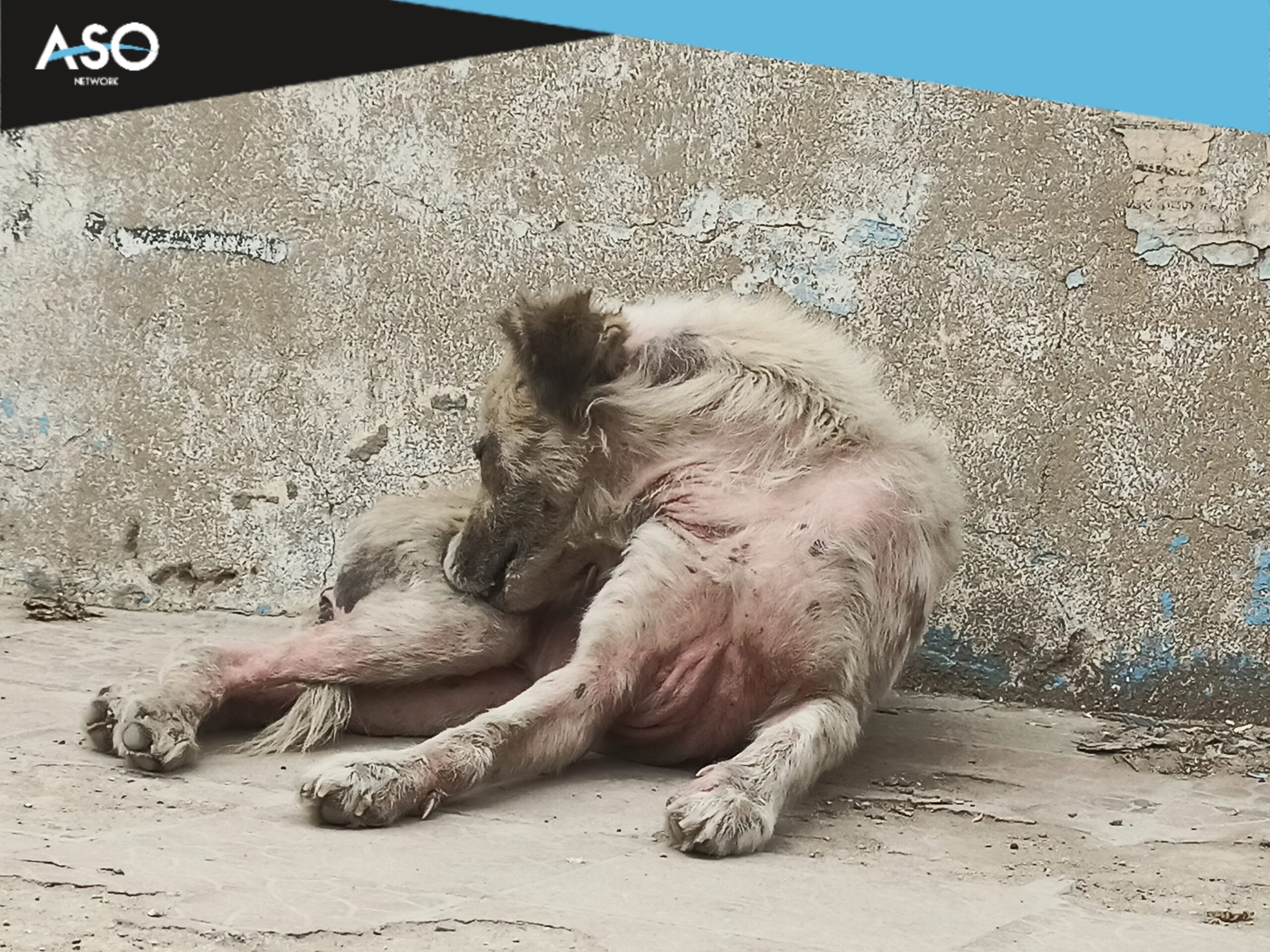News
Without finding any solution, “Stray dogs” spread throughout Qamishlo that increases the fears of the residents

ASO – Avin Alo
“Haboun” lives in the western neighborhood of the city of Qamishli / Al-Qamishli. Her job requires preparing every morning to go to work, but something prevents her from leaving the house every morning… the large presence of “stray dogs” in front of the door of her house, and on the sidewalks extending in the neighborhood in which she lives.
The scene of the spread of stray dogs has become clear in different neighborhoods of the city of Qamishlo. Parents who send their children to school every morning have become fearful of the widespread stray dogs.
“I sometimes have to throw water near the dogs or throw stones near them, so that they move from their places so that I can leave the house,” Haboun said in her interview with ASO News Network.

Haboun adds that there may not be clear ferocity from dogs towards families, but this does not mean that there should not be caution and caution against negative consequences, from dogs, on their children.
Appeal to the responsible authorities
Haboun’s fear of this phenomenon made her appeal to the municipality and local authorities to find a solution to this widespread phenomenon.
Previously, the solutions used by municipalities in various regions were to kill dogs, but specialists believe that killing animals helps with the environmental imbalance. However, Haboun says, “Killing is not useful, and their spread is also not useful.” There must be proposed solutions, such as collecting these dogs in Designated reserves.
Residents complain about the spread of dogs, which is not limited to neighborhoods only. The phenomenon of seeing dogs during the day and at night in the city has become widespread in markets and at the entrances to shops and clinics.
Fear of diseases
Mrs. “Asmaa,” a teacher who lives in Al-Quwatli neighborhood in the center of the city, says that the phenomenon of the spread of dogs is not limited to the fear of the dogs being exposed to the people, but also the fear that these stray dogs may be infected with diseases.
“Asmaa” demands finding a solution and establishing sanctuaries for stray dogs in various cities and towns in North-East Syria.
The principal of a school in Qamishlo (who preferred not to reveal his name) confirms the phenomenon of the spread of stray dogs in front of school doors, considering that their appearance is inappropriate and contributes to severe cases of fear among children and school students.

The school principal points out that “stray dogs,” which may carry diseases and epidemics, pose a threat to the students’ health, “especially as we head into the summer.”
The people fear that these dogs are “rabid” (as is widespread in the societal language culture), so they fear that the bite of a rabid dog may cause what is known as “rabies,” which is a viral disease that affects the brain directly, according to doctor “Mohammad Issa,” who is A pediatrician from Qamishlo.
Doctor Mohammad Issa says that “dog bite” disease is transmitted through saliva between dogs, and is transmitted to humans through a dog’s bite or lick on the human body, and thus the germ is transmitted to humans and is very dangerous, according to his description.
In the case of a dog bite, doctors advise immediate treatment as it is contagious. The wound must first be washed and sterilized, and if the wound is open, it should be left as it is.
Dog bite needles are available at the National Hospital and at Alaya Pharmacy in Qamishlo.
In Al-Darbasiyah, it is available in the clinics of the city of Al-Darbasiyah and Tal Baydar, according to what was stated by veterinarian Dr. Fares Othman, director of the health office in the People’s Municipality in Qamishlo.
According to specialized doctors, needles should be taken with the advice of a doctor by taking three needles (rabies serum), one needle every three days.
According to the statistics available at Tel Baydar Medical Center for the year 2023, the number of people infected with rabies reached 25, and in the Amuda district, 64 cases were recorded from the beginning of the year until the current month of May.
Years ago, the municipality deliberately killed stray dogs in the streets, which was criticized by humanitarian organizations, according to Amal Shamdeen, the co-chair of the municipality of Qamishlo city.
The municipal official told ASO News Network, “We do not have any solutions at the present time, but in the future, with the help of some organizations, it is possible to plan to establish reserves for these dogs,” without specifying the timing and mechanism of possible solutions (..).

Years ago, the “Animal Welfare” Association submitted a project proposal to the municipal authority in North-East Syria, by establishing a reserve in Nafkuri, west of Qamishlo, with an area of about 40 dunams, but the People’s Municipal Council in Al-Jazira Province was only approved for a much smaller area, according to Director of the association.
The association’s director, Souad Melki, told ASO News Network that they faced a problem and disagreement over the specific land area, as the municipal council approved an area of only 5 dunums. “This area is not sufficient to establish a reserve and contain dogs from northern and eastern Syria, as the area also requires building A medical center and rooms to care for and monitor the health of dogs.”

Between the bureaucracy of decisions, and the associations’ lack of agreement with the responsible local authorities, these stray dogs remain widespread in neighborhoods and markets, without finding solutions to their spread, and without seeking to solve a problem that is disturbing society.
